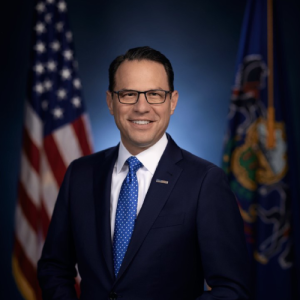 A push by a Democratic governor and a closely divided General Assembly to expand private school choice in Pennsylvania stalled this week. But some hope remains for bipartisan expansion of educational options.
A push by a Democratic governor and a closely divided General Assembly to expand private school choice in Pennsylvania stalled this week. But some hope remains for bipartisan expansion of educational options.
Gov. Josh Shapiro announced this week he would use his line-item veto to excise funding for a proposed private school scholarship program from the budget approved by lawmakers.
The move was designed to win support of the narrow Democratic majority in the House. It succeeded in convincing them to pass a budget. But it angered Republicans, who control the Senate.
In a statement, Shapiro made clear that approving the scholarship funding would have been pointless, because legislation creating the program had not passed. A House committee voted down a bill creating the Pennsylvania Award for Student Success Scholarship Program in a party-line vote last week.
“[House Majority Leader Matt] Bradford requested a legal memo from the Office of General Counsel, which confirmed that without enabling legislation setting up this program, my Administration legally cannot implement it," Shapiro said.
Spotlight PA reports that this might not be the last of the legislative maneuvering around school choice in the Commonwealth's budget debate. Lawmakers are already scrambling as they enter a new fiscal year without a new spending plan fully finalized. And Republicans still have leverage.
Lawmakers still have to approve code bills — complicated pieces of omnibus budget-enabling legislation that dictate state policy on things like taxing, spending, and education.
And, in a potentially more immediate problem, Pennsylvania’s Constitution requires that the presiding officers of each chamber sign off on all bills before they head to the governor’s desk. This is usually routine. However, the state Senate, now miffed by Shapiro’s reversal over vouchers, isn’t scheduled to be back in Harrisburg until September.
In a statement, Senate GOP leaders Kim Ward (R., Westmoreland) and Joe Pittman (R., Armstrong) said Shapiro had “decided to betray the good faith agreement we reached.”
They added, “the General Appropriation bill is not the final step in the budget process. The Senate will continue to await legislative action by the House on the remaining budgetary components, to see what House Democrats, with the slimmest majority, are able to advance.”
No matter how the immediate drama plays out, Shapiro's statement indicated he will continue to seek support for private school choice among his fellow Democrats, and that he had secured their commitment to revisit the issue in the future. He also noted pointedly that Republicans could play ball on other priorities, like criminal justice reform or raising the minimum wage, that passed the House but died in the Senate.
Come Thursday, the deadline for the Pennsylvania General Assembly to approve the state's budget will pass. But despite the tight timetable, Gov. Tom Corbett told reporters yesterday that the state is in "as good a position" as any to get a school voucher bill approved by that date. Others, including the voice of the capital's main newspaper, which supported SB 1, are urging caution and careful deliberation before deciding on that bill or any of a flurry of measures that have surfaced in recent days that would publicly fund private school options.
SB 1 would provide a voucher first to students who attend the state's most persistently low-achieving schools before expanding to all low-income students statewide. But two other measures have been introduced. One bill, HB 1708 from state Rep. Jim Christiana, would expand the Educational Improvement Tax Credit to families earning as much as $60,000 as well as provide vouchers to low-income kids who attend the lowest-performing 5 percent of Pennsylvania's schools. Rep. Tom Quigley also filed a bill, HB 1330, that would expand the cap on the EITC program to $100 million in 2011-12 and to $200 million thereafter.
Additionally, state Rep. Curt Shroder plans to introduce two school choice bills which, unlike SB 1, do not establish income limits for eligibility, but would award vouchers to students who live in the attendance boundary of a persistently low-achieving school, something Shroder calls the Failing Schools Student Rescue Act. Another, which he calls the Opportunity Scholarship and Educational Improvement Tax Credit Act, would offer a $5,000 scholarship to all students in the commonwealth.